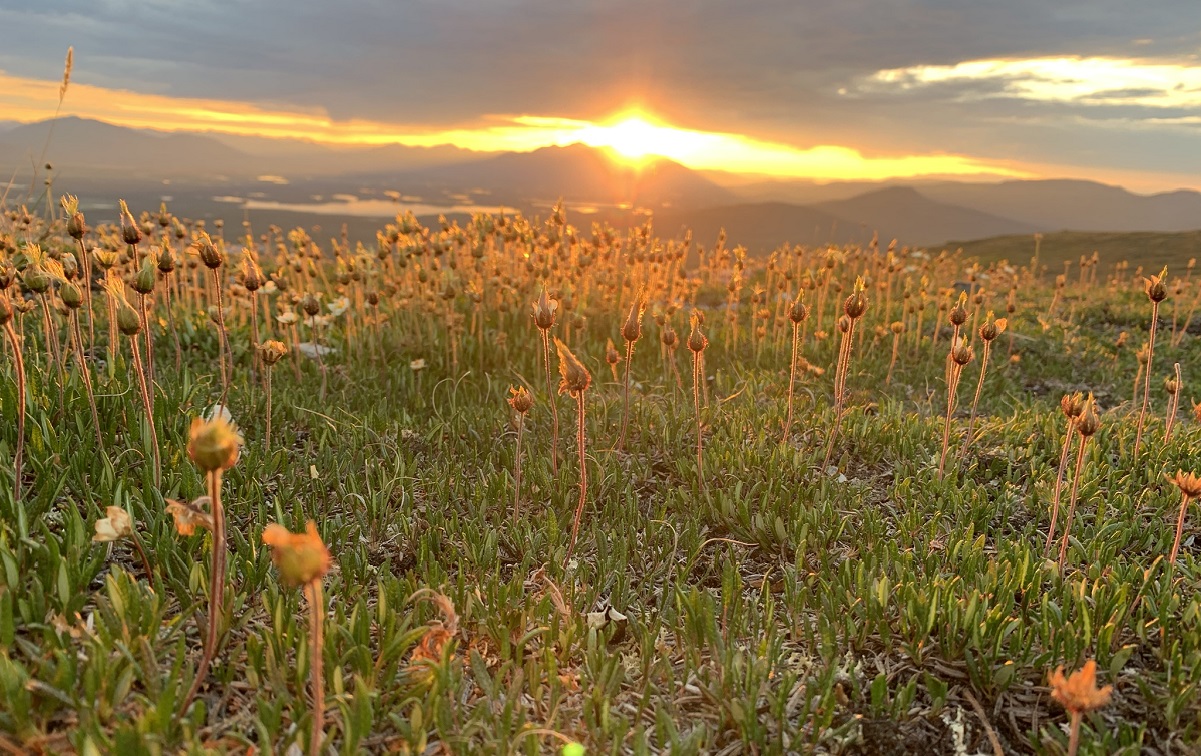This is how the coastal plain of the Arctic National Wildlife Refuge is referred to by the Gwich'in people, the Alaska Native nation that inhabits the northern portions of Alaska and Canada. From time immemorial their lives have been intertwined with the Porcupine caribou herd, a caribou herd named for the major river of their wintering grounds, who undertake the longest land migration of any mammal on Earth. Every year they travel 2,500 km in order to give birth and nurse their offspring on the coastal plain -- the very place the Trump administration is trying to drill for oil.
They migrate, well-fed, with their calves to the interior of the Brooks Mountain Range to pass the brutal Arctic winter and come back scrawny and hungry to give birth in the coastal place where there is more food, fewer predators, and a safe area for calves to spend the first few weeks of their lives. They are not the only ones giving birth in that area; many other species from bears and wolves to migratory birds and fish come here to lay eggs and spawn.
The Gwich’in have hunted caribou for millennia, using their skins, meat, antlers, pelts in a sustainable manner. They know that there is a fine balance and that their survival depends on the survival of the caribou. These avid hunters do not even go close to this area to not obstruct that special moment between mother and calf.
I had the opportunity to spend some time with the Gwich’in around the solstice this past summer. It was a privilege beyond anything I could ever imagine to listen to Gwich’in elders’ stories from the past, to savor their caribou soup, to dance to the rhythm their fiddlers played. As Gideon James, a revered elder, raised awareness about the challenges and impacts of climate change,I was struck by the clarity of his words and the urgency of his call to youngsters. Their world has changed.
After spending time at Arctic Village, we embarked on a rafting trip to the Arctic Ocean, where we only encountered four kayakers, countless wildlife, and indescribable vastness while baked by the 24-hour sun.
But this perfect balance of human and nonhuman life is threatened by the Trump administration’s reckless plan to open up the Arctic National Wildlife Refuge to oil and gas drilling. After sneaking through authorization to lease and drill in the Arctic Refuge in a 2017 tax bill, the administration hoped to hold the first sales last year -- causing irreversible damage to this sacred place, especially in the likely event of a spill.
Drilling in this refuge means trampling over Gwich’in sovereignty and overriding the will of the American people, nearly 70 percent of whom oppose industrializing one of the country’s most beautiful and biodiverse places. It would harm the amazing diversity of species that depend on the reserve to birth their young, from polar bears to caribou.
It would be disastrous for our climate, too. Scientists from six organizations recently found that the world’s top oil-producing countries are on track to produce vastly more fossil fuels that we can burn without blowing past the point of catastrophic warming. We need to wind down existing fossil fuel production, not increase it.
Because of delays in the environmental review process, the Trump administration didn’t meet its goal of holding the first drilling lease sales in the Arctic Refuge last year. But they won’t stop trying to give the fossil fuel industry everything on its wish list, and that includes drilling in the Arctic. Interior Secretary David Bernhardt has already announced that he intends to open up the refuge for lease sales in the near future.
Years of pressure from the Gwich’in and allies like the Sierra Club have sent a powerful message to oil companies and banks that might be tempted to disturb the refuge for the sake of further profits. Last spring, a coalition of investors representing $2.5 trillion in assets announced their opposition to oil and gas development in the Arctic Refuge, and advised other financial institutions to follow their lead.
And they’re gaining converts. In December, Goldman Sachs became the first major US bank to rule out financing drilling in the Arctic. Today, they were joined by JP Morgan Chase, the bank most responsible for the expansion of the fossil fuel industry in the years since the Paris Agreement. This represents a major turning point for Chase, which has been one of the top funders of Arctic exploration and drilling.
We have to keep the pressure on and fight the Trump administration’s plan every step of the way. Join us in rising with the Gwich’in people to fight against drilling in the sacred place where life begins.
